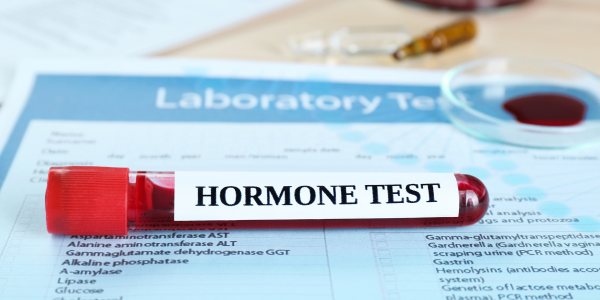

Hi, this is Dr. Emily Parke with your next Functional Health Minute. I just wanted to take a couple minutes and talk about blood sugar regulation and what are some of the top supplements you can take for blood sugar regulation. Now, before we go into supplements, I of course need to talk about diet and exercise, sleep, stress, toxins. All of those things of course affect blood sugar and those are the lifestyle factors that should be put in place prior to taking any supplements or if you want to do them and the supplements at the same time. But what I really want to discourage is people thinking, “Oh, I’m just going to take these supplements or these pills and my blood sugar is going to get better.” You definitely have to put effort in and the supplements are synergistic with lifestyle changes. Of course, the top nutrition changes to help with blood sugar regulation are stopping sugars, alcohols, decreasing processed and packaged food, and just controlling overeating overall.
Berberine
So that being said, what are my favorite supplements for blood sugar regulation? Well, my top favorite supplement is Berberine CM, and this is berberine combined with alpha-lipoic acid. Berberine has been pretty well studied to be as effective as Metformin, which is a prescription medication for type 2 diabetes (and prediabetes). The cool thing about Berberine is it actually has so many other benefits besides help with blood sugar regulation. For example, it can also help with your lipid profile, so cholesterol and triglycerides. It’s also an herbal antimicrobial as in, almost like an herbal antibiotic.
So sometimes I’ll actually place patients on berberine that have some infections that we’re treating or overgrowths that we’re treating. And berberine has also been really well studied to help other inflammatory conditions as well. So this product again, combines berberine CM and alpha-lipoic acid or ALA, so alpha-lipoic acid also, besides helping with blood sugar, it’s an important antioxidant. It can also help with nerve pain or neuropathic pain. So the combination of the two is really powerful for not just blood sugar, but many other things.
Chromium
So my second go to is Chromium. And this chromium is a different type of chromium. So it’s not just your typical chromium. This is chromium-o polynicotinate. So this chromium is extra special because it helps with blood sugar regulation a little bit more than your average chromium. So how does it do that? It actually helps you become more insulin sensitive. In other words, it helps with the glucose insulin interaction at the cellular level. So the combination of the two, again, combined with diet and lifestyle changes, can really be a needle mover with blood sugar. So what are the lab values that I’m looking at when I’m evaluating blood sugar?
I’m looking at your fasting blood glucose of course. I’m looking at your fasting insulin. Those two, by the way, are very of the moment. So they can change pretty quickly from day to day. So if I said, “Hey, so and so, fast for a day, let’s check your insulin and your blood glucose,” or “Hey, so and so, go out and have a huge cheat meal with pizza and cake and ice cream and alcohol, all this stuff, and let’s check your insulin and glucose.” They can change fairly rapidly. Now it’s going to change within your range. If you are a diabetic, obviously those levels are going to be at a higher end of the range, prediabetic at a different range or normal at a different range. But nonetheless, they are of the moment and there’s a lot of things that can influence them.
How to Evaluate Blood Sugar
So that’s why my favorite test for evaluating what’s really going on with blood sugar regulation is the hemoglobin A1C. So that’s more of a three month marker of what has been going on with your blood sugar balance. So it takes away the “of the momentness”, so to speak, of fasting glucose and fasting insulin. Now I still do like to collect the fasting glucose and the fasting insulin. As long as there hasn’t been any of the scenarios that I just described earlier, like a fasting or a binge close to the fasting glucose or the fasting insulin, then might be pretty reflective of what’s going on. And then of course, if you want to get really advanced, and I’ve done videos on this before, looking at a CGM. So a continuous glucose monitor, a monitor that you can put in goes into the arm, lasts for 14 days.
The one I like to have patients use, and you can see your blood sugars all the way throughout the day. And the most important times to look are fasting. So right when you wake up, before you eat anything. Besides before meals and one and two hours after meals, checking and seeing what happens to your glucose can be really eye opening and help you figure out what foods or food combinations may be the best for you and which ones may not be the best for you. And I have to tell you from doing it myself, that you can be quite surprised when you actually get the data. So again, just to kind of summarize, lab tests, fasting glucose, fasting insulin, hemoglobin A1C are my favorites. And supplement wise, we’re doing Berberine CM and active chromium, those are my top two. But of course, we’re always going to go with diet and lifestyle changes first. This is Dr. Emily Parke with your next Functional Health Minute.
Share:
Dr. Emily Parke
Social Media
Most Popular Posts
Subscribe To Our Newsletter
Related Posts

New Podcast Episode: My journey into functional medicine + what I’ve learned
I’m excited to share that I recently joined DeLo for Episode 165 of the On the DeLo podcast! In this conversation, we explored my journey

Understanding the Essential Labs for Women on Hormone Replacement Therapy (HRT)
So what are the minimum labs we’re looking at when we do hormone replacement therapy? We obviously want to look at an estrogen level, so

How to figure out the right amount of HRT in women
What about checking lab values when you’re on hormone replacement therapy? I do find it to be helpful, but we also want to consider symptoms.

Did you know there’s a difference between food allergies, sensitivities, and intolerances?
Did you know that there’s a difference between food allergies, food sensitivities and food intolerances? Food allergies, the reactions tend to happen pretty immediately and
